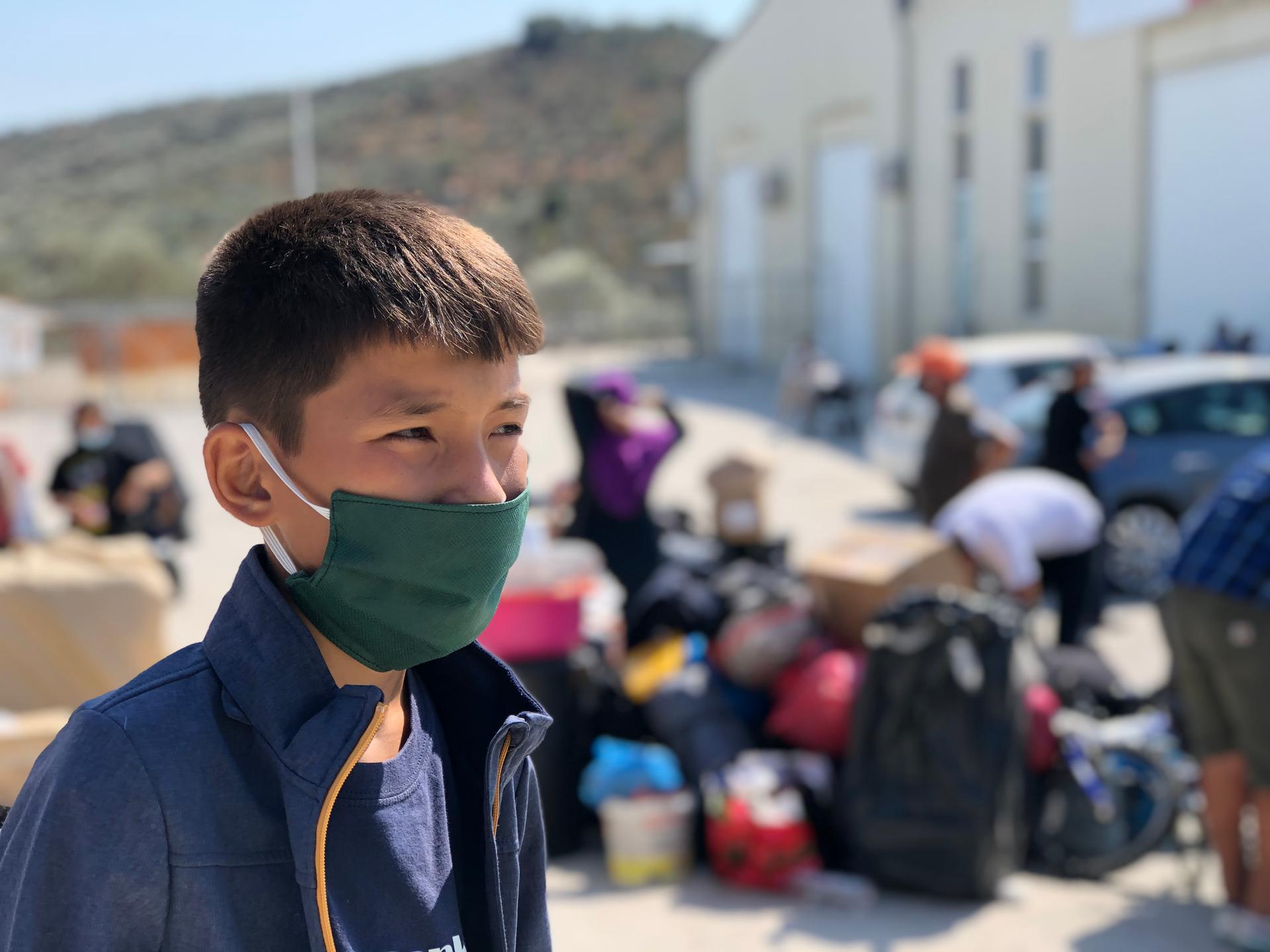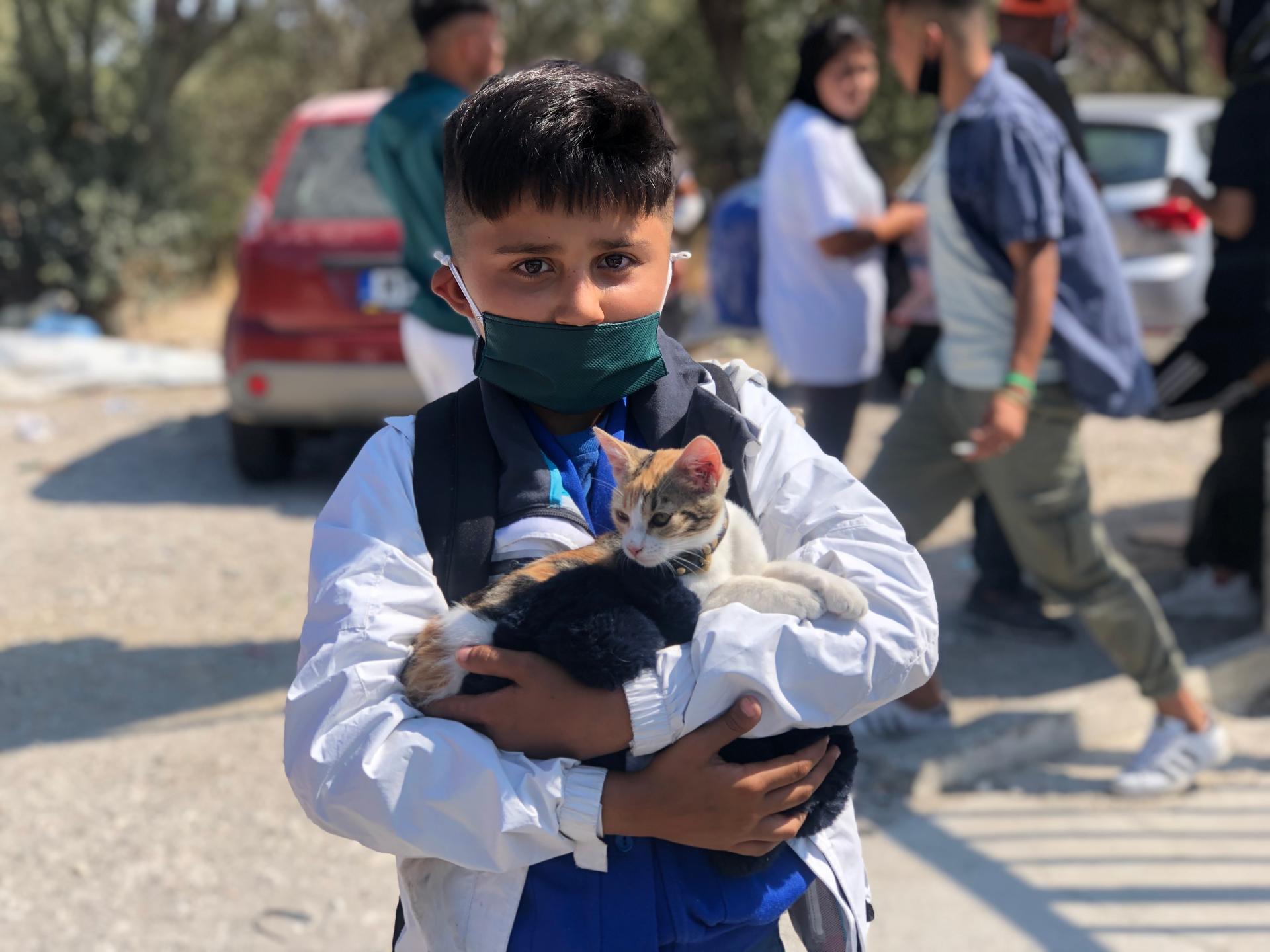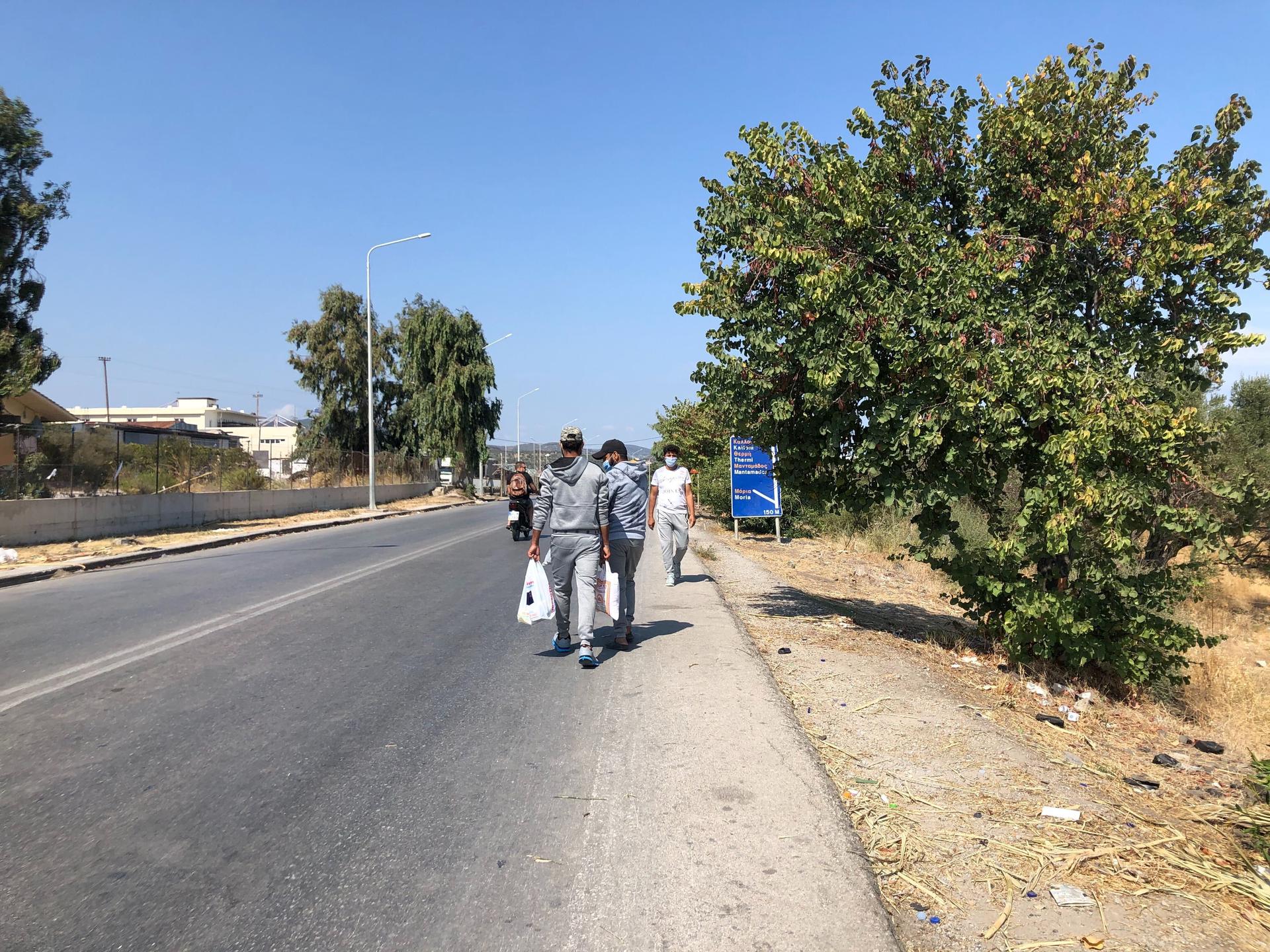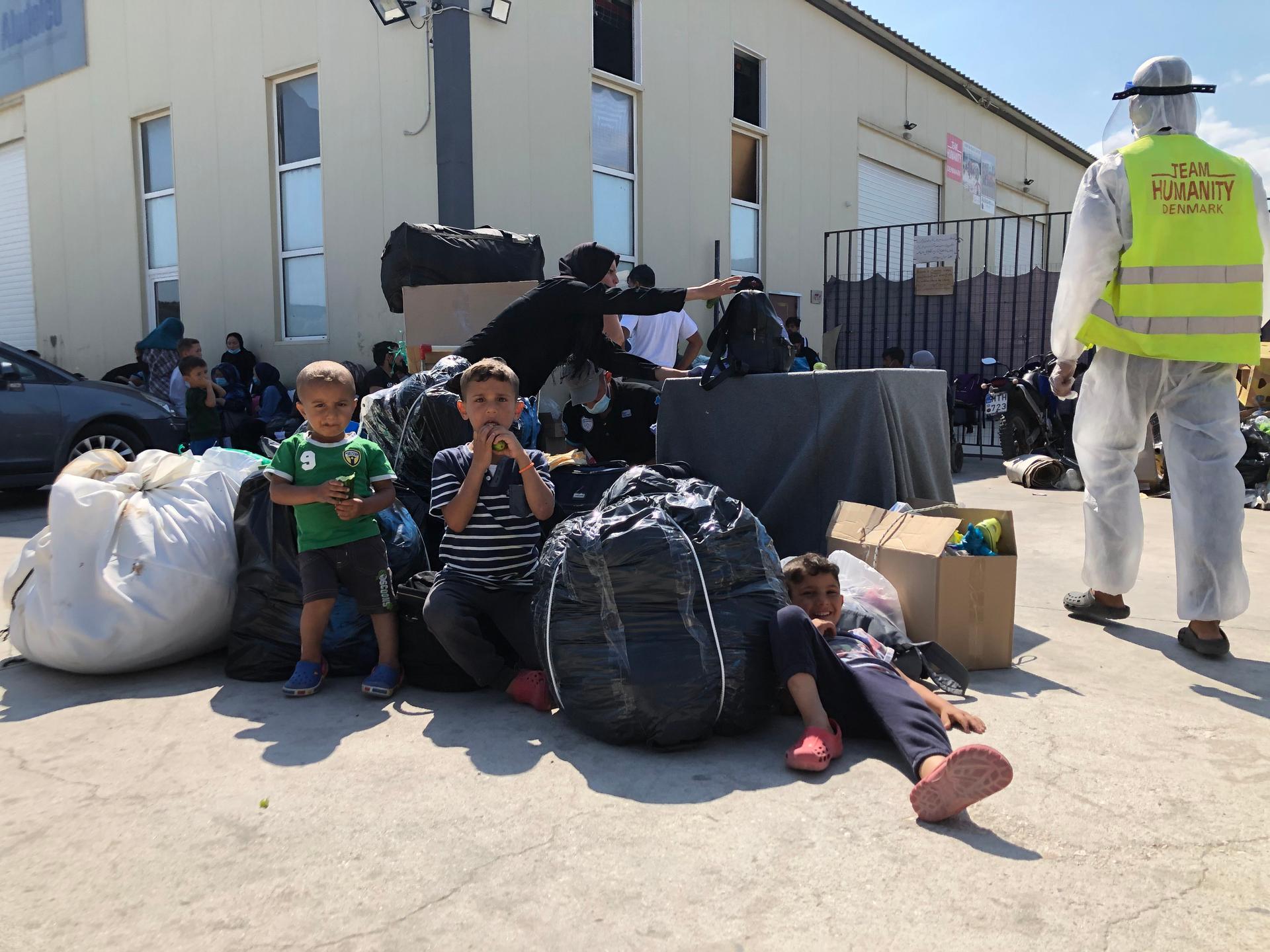Since the fire that engulfed Moria camp on Lesbos island nearly two weeks ago, more than 500 of the 12,000 displaced migrants and refugees have been taking shelter at a center run by Team Humanity, a nonprofit humanitarian organization.
Related: After fire, Greek police move asylum-seekers to new camp
“Now, it’s the time for them to go to the new camp,” said Emad Baghlani, one of the group’s coordinators, as he helped migrants pack and load their belongings into a bus that would take them to a new campsite co-managed by the Greek government and EU agencies.
These migrants were among the last of the more than 12,000 displaced still trickling into the new site on Sunday. Many who have already moved into the camp, a former military firing range, say conditions are inhumane, and they worry their new home will turn into the next Moria — a camp notorious for its squalid and overcrowded conditions.
“I hope to [leave] the new camp as soon as possible, to go to another country. I want to be free.”
“I hope to [leave] the new camp as soon as possible, to go to another country,” said Javad, a 13-year-old asylum-seeker from Afghanistan, who has been on Lesbos for 14 months with his parents and two siblings. “I want to be free.”

A few feet away, a young Afghan asylum-seeker named Mohammad sat in the middle of a pile of black trash bags containing his and his family’s belongings, cradling a collared cat. Mohammad found the cat about six months ago while he was living at Moria camp, and named it Kuchulu, which roughly translates to Little. After hearing rumors that pets were not allowed into the new camp, he worried he would not be able to bring his feline friend along.

Nazanin, a 14-year-old, Afghan asylum-seeker, has already relocated to the new camp.
Related: Migrants displaced by fire at Moria camp on Lesbos: ‘Nobody’s life is safe here’
Nazanin says conditions inside the new camp are poor. There are too few port-a-potties and not enough pumps with running water for the thousands already inside the camp. Garbage was already starting to pile up due to a lack of adequate garbage bins and trash cans.
“It’s very crowded,” Nazanin said, adding that two families were being housed in each tent, regardless of the number of family members.
“I’m really worried that it will be Moria again.”
“I’m really worried that it will be Moria again.”
Related: Greece and Turkey sail toward a crisis of sea borders
Sources inside the camp told The World that single men are being packed into larger mega tents — about 150 men in each tent, and many are concerned about a COVID-19 outbreak under the circumstances. Currently, there are nearly 200 confirmed cases of COVID-19 inside the new camp, according to Greek authorities. Those who tested positive upon entering the camp were placed in a quarantined area walled off by barbed wire near the entrance of the camp.
Some migrants are also reporting issues with food distribution, which happens once a day. Some in the camp say there often is not enough food for everyone inside, forcing migrants to venture out into town to buy their own supplies. (Migrants are currently allowed to leave the premises between 8 a.m. and 8 p.m.)

Because it’s right by the sea, some advocates say the camp is highly floodable and they’re worried about the safety of people come wintertime.
Related: Thousands of refugees sleep in streets after fire destroys Greece’s Moria camp
“Afghanistan is war. As you know it’s attacks and wars,” Nazanin said of her home country. “Because of that all we come here, come to Europe to have a good living. But [even] Afghanistan … is better than this.”
The story you just read is accessible and free to all because thousands of listeners and readers contribute to our nonprofit newsroom. We go deep to bring you the human-centered international reporting that you know you can trust. To do this work and to do it well, we rely on the support of our listeners. If you appreciated our coverage this year, if there was a story that made you pause or a song that moved you, would you consider making a gift to sustain our work through 2024 and beyond?
